Our graduate programs offer MS and PhD training in speech language pathology and several biomedical sciences disciplines including: cell and molecular biology, clinical research, developmental and reproductive biology, and tropical medicine. In addition to graduate programs focusing on a single discipline, an interdisciplinary graduate program is offered in Neuroscience.
Graduate faculty from the School of Medicine as well as several cooperating institutions including the Cancer Center of Hawaiʻi and the Pacific Biosciences Research Center, are involved in a wide range of research projects, from the molecular processes involved in embryo formation to the antioxidant properties of trace elements that may play a role in aging and disease susceptibility.
Certain programs provide research and training addressing health disparities in Asian and Pacific Islander populations. Research is carried out in the state-of-the-art BioScience Building located at the School of Medicine’s Kakaʻako facility which has received national recognition by the U.S. Green Building Council.
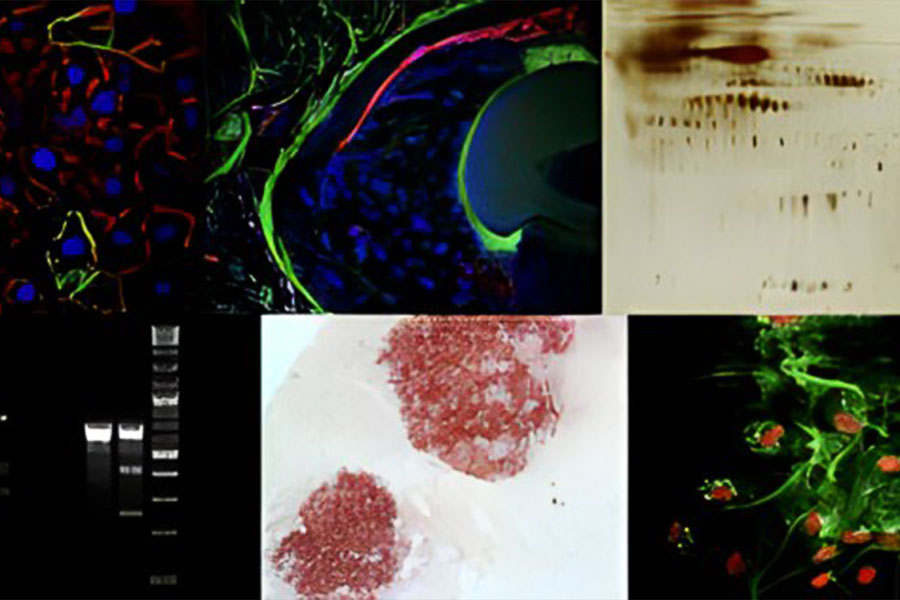 The Cell and Molecular Biology Graduate Program in Biomedical Sciences provides an integrated course of study for students seeking a PhD or MS degree in health-related research that emphasizes the increasingly powerful techniques and approaches of cell and molecular biology. Participating faculty members are drawn from across the campus: they come from the Basic and Clinical Sciences Departments of the Medical School, the Cancer Research Center, The Pacific Biomedical Research Center, the College of Natural Sciences, and the College of Tropical Agriculture.
The Cell and Molecular Biology Graduate Program in Biomedical Sciences provides an integrated course of study for students seeking a PhD or MS degree in health-related research that emphasizes the increasingly powerful techniques and approaches of cell and molecular biology. Participating faculty members are drawn from across the campus: they come from the Basic and Clinical Sciences Departments of the Medical School, the Cancer Research Center, The Pacific Biomedical Research Center, the College of Natural Sciences, and the College of Tropical Agriculture.
Contacts: Michelle Tallquist, PhD | michelle.tallquist@hawaii.edu or Graduate Program Administrator | cmbgrad@hawaii.edu
Website: https://cmbdept.jabsom.hawaii.edu/graduate-program/
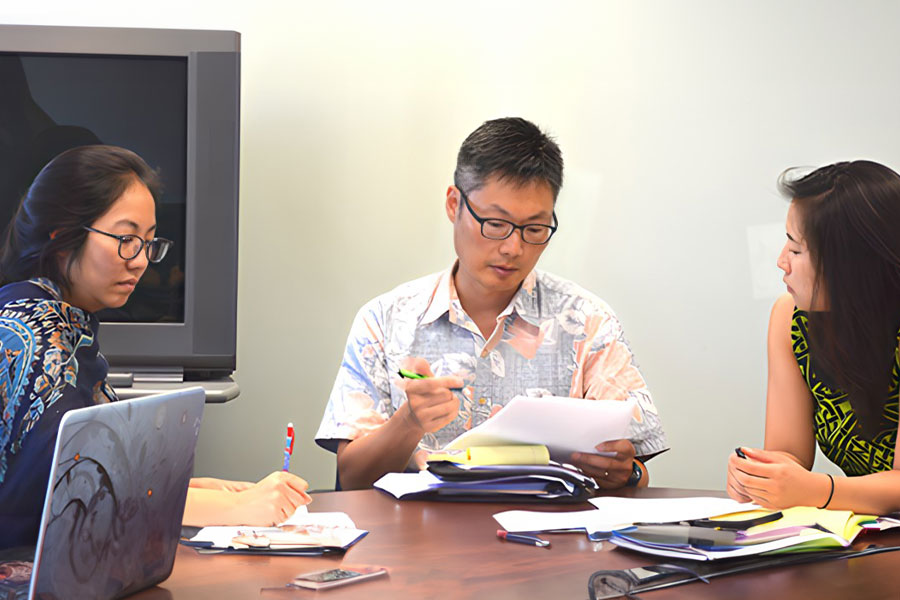 The Quantitative Health and Clinical Research (QHCR) graduate program will prepare graduates with skills for successful careers in clinical and translational research and research support. The Clinical Research (CR) track focuses on the study of methods suitable to investigate clinical research topics. Students enrolled in the CR track are required to complete a combination of course work and clinical research. The competency domains include clinical and translational research, quantitative health skill, professionalism, communication, and interdisciplinary collaboration. Students will also develop the ability to identify and resolve ethical issues in clinical research, to ensure the safeguarding of human subjects, and to understand the workings of Institutional Review Boards and relevant organizational requirements. In addition, students will develop and/or increase their capacity in obtaining research funding from agencies such as the National Institute of Health (NIH) and others. The Quantitative Health Sciences (QHS) track contributes to a field that requires specific analytic skills and is one that is currently lacking sufficient numbers of experts. Students enrolled in the QHS track will acquire skills in biostatistics and bioinformatics, and master the scientific principles and methodologies that underlie basic science, and clinical and translational research methods.
The Quantitative Health and Clinical Research (QHCR) graduate program will prepare graduates with skills for successful careers in clinical and translational research and research support. The Clinical Research (CR) track focuses on the study of methods suitable to investigate clinical research topics. Students enrolled in the CR track are required to complete a combination of course work and clinical research. The competency domains include clinical and translational research, quantitative health skill, professionalism, communication, and interdisciplinary collaboration. Students will also develop the ability to identify and resolve ethical issues in clinical research, to ensure the safeguarding of human subjects, and to understand the workings of Institutional Review Boards and relevant organizational requirements. In addition, students will develop and/or increase their capacity in obtaining research funding from agencies such as the National Institute of Health (NIH) and others. The Quantitative Health Sciences (QHS) track contributes to a field that requires specific analytic skills and is one that is currently lacking sufficient numbers of experts. Students enrolled in the QHS track will acquire skills in biostatistics and bioinformatics, and master the scientific principles and methodologies that underlie basic science, and clinical and translational research methods.
Contacts: Eunjung Lim, PhD | lime@hawaii.edu or John Chen, PhD | jjchen@hawaii.edu
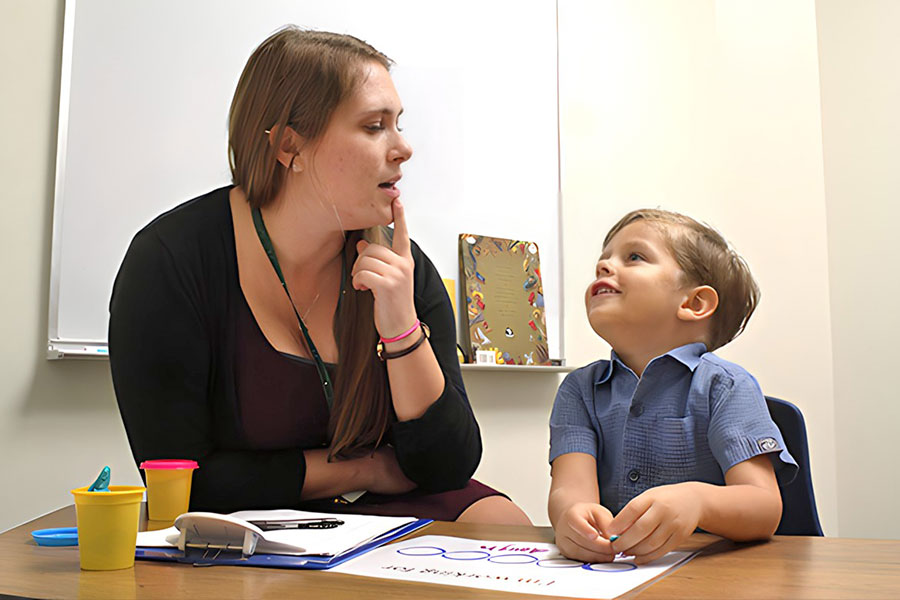 The Department of Communication Sciences and Disorders offers a two-year, full-time Master’s of Science degree in Speech Language Pathology (SLP). This Master’s degree fulfills the academic and clinical requirements established by the American Speech Language Hearing Association (ASHA) for the Certificate of Clinical Competence in SLP. The program has an emphasis on evidence-based-practice, and provides extensive clinical education and research training. Students develop their skills while providing therapy to a wide range of clients across the lifespan through the UH Speech and Hearing Clinic as well as off-site clinical placements. Students are supervised and taught by experienced faculty who have specialties across the SLP scope of practice. Students will receive a unique experience to develop their skills while working in the culturally-rich and multilingual community of Hawaiʻi.
The Department of Communication Sciences and Disorders offers a two-year, full-time Master’s of Science degree in Speech Language Pathology (SLP). This Master’s degree fulfills the academic and clinical requirements established by the American Speech Language Hearing Association (ASHA) for the Certificate of Clinical Competence in SLP. The program has an emphasis on evidence-based-practice, and provides extensive clinical education and research training. Students develop their skills while providing therapy to a wide range of clients across the lifespan through the UH Speech and Hearing Clinic as well as off-site clinical placements. Students are supervised and taught by experienced faculty who have specialties across the SLP scope of practice. Students will receive a unique experience to develop their skills while working in the culturally-rich and multilingual community of Hawaiʻi.
Contact: Eunjung Lim, PhD | uhmcsd@hawaii.edu
Website: http://csd.jabsom.hawaii.edu/
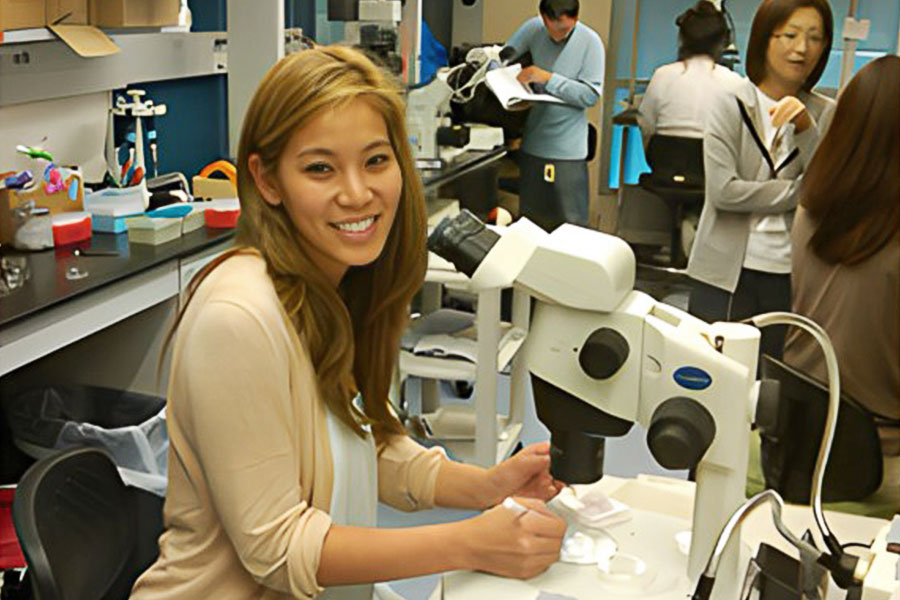 In August 2009, the name of the Graduate Program in Physiology was changed to the Graduate Program in Developmental and Reproductive Biology (DRB) with a consequent shift in the focus of the program. The major reason for this change was to provide students with the opportunity to participate more fully in the state-of-the-art research program that has developed during the last nine years at the John A. Burns School of Medicine (JABSOM) in the newly formed Institute for Biogenesis Research (IBR). Many significant discoveries relating to developmental and reproductive biology have been made by scientists in this institute. The new DRB program will continue to offer students a wide variety of course work that will allow them to choose many different career options after completing their degrees. More importantly, it will add greater opportunities for those interested in research. Both the graduate program and the IBR are housed in the Department of Anatomy, Biochemistry and Physiology.
In August 2009, the name of the Graduate Program in Physiology was changed to the Graduate Program in Developmental and Reproductive Biology (DRB) with a consequent shift in the focus of the program. The major reason for this change was to provide students with the opportunity to participate more fully in the state-of-the-art research program that has developed during the last nine years at the John A. Burns School of Medicine (JABSOM) in the newly formed Institute for Biogenesis Research (IBR). Many significant discoveries relating to developmental and reproductive biology have been made by scientists in this institute. The new DRB program will continue to offer students a wide variety of course work that will allow them to choose many different career options after completing their degrees. More importantly, it will add greater opportunities for those interested in research. Both the graduate program and the IBR are housed in the Department of Anatomy, Biochemistry and Physiology.
Contact: Monika Ward, PhD | mward@hawaii.edu
Website: https://jabsom.hawaii.edu/grad_drb/
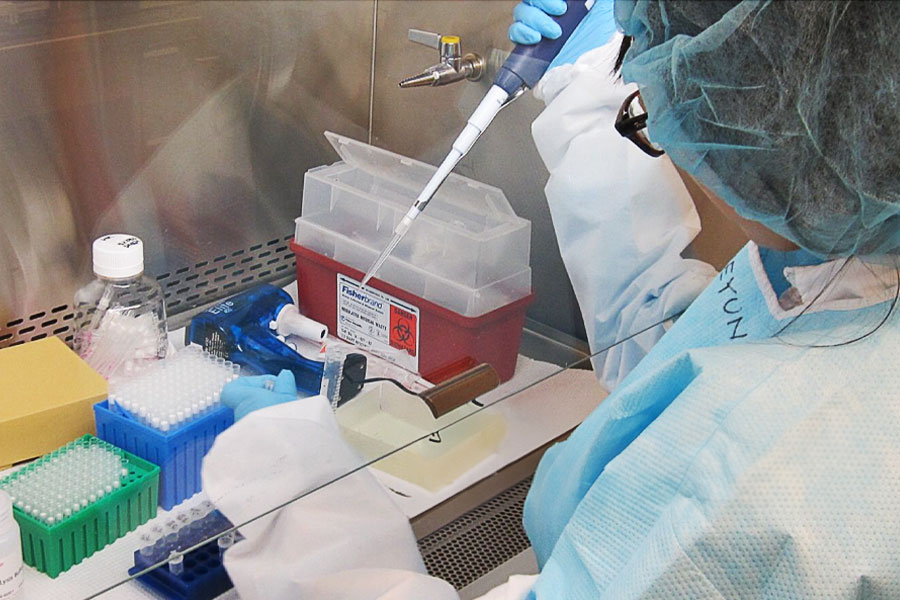 The Department of Tropical Medicine, Medical Microbiology, and Pharmacology offers graduate programs leading to the MS and PhD in Biomedical Sciences (Tropical Medicine). Faculty conduct extensive research on pathogenic microorganisms and the diseases they cause using laboratory-based, field-based and clinic-based techniques. The department is one of the few academic departments in the United States that offers learning opportunities in virology, bacteriology, parasitology,entomology, immunology, epidemiology, ecology, and evolution of infectious diseases.
The Department of Tropical Medicine, Medical Microbiology, and Pharmacology offers graduate programs leading to the MS and PhD in Biomedical Sciences (Tropical Medicine). Faculty conduct extensive research on pathogenic microorganisms and the diseases they cause using laboratory-based, field-based and clinic-based techniques. The department is one of the few academic departments in the United States that offers learning opportunities in virology, bacteriology, parasitology,entomology, immunology, epidemiology, ecology, and evolution of infectious diseases.
Contact: Sandra Chang, PhD | sandrac@hawaii.edu